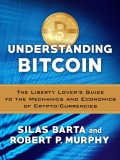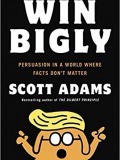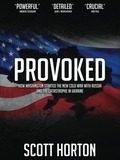Book

Animal Farm
George Orwell's timeless and timely allegorical novel—a scathing satire on a downtrodden society’s blind march towards totalitarianism.
“All animals are equal, but some animals are more equal than others.”
A farm is taken over by its overworked, mistreated animals. With flaming idealism and stirring slogans, they set out to create a paradise of progress, justice, and equality. Thus the stage is set for one of the most telling satiric fables ever penned—a razor-edged fairy tale for grown-ups that records the evolution from revolution against tyranny to a totalitarianism just as terrible.
When Animal Farm was first published, Stalinist Russia was seen as its target. Today it is devastatingly clear that wherever and whenever freedom is attacked, under whatever banner, the cutting clarity and savage comedy of George Orwell’s masterpiece have a meaning and message still ferociously fresh.
“All animals are equal, but some animals are more equal than others.”
A farm is taken over by its overworked, mistreated animals. With flaming idealism and stirring slogans, they set out to create a paradise of progress, justice, and equality. Thus the stage is set for one of the most telling satiric fables ever penned—a razor-edged fairy tale for grown-ups that records the evolution from revolution against tyranny to a totalitarianism just as terrible.
When Animal Farm was first published, Stalinist Russia was seen as its target. Today it is devastatingly clear that wherever and whenever freedom is attacked, under whatever banner, the cutting clarity and savage comedy of George Orwell’s masterpiece have a meaning and message still ferociously fresh.
aboutLiberty Portal
Liberty Portal is your gateway for free markets and free thinking. We aggregate open-sourced content to promote and popularize important people and lessons within the liberty movement.
suggested
Robert P. Murphy & Silas Barta
Understanding Bitcoin

This free e-book from economist Bob Murphy and coauthor Silas Barta is an excellent introduction to the technical and economic aspects of Bitcoin and cryptocurrencies.
Read more
Scott Adams
Win Bigly: Persuasion in a World Where Facts Don't Matter

Win Bigly is not just a book detailing how Scott Adams was able to predict Donald Trump's Presidential victory. This is a book about the science and skill of persuasion.
Read moreInformative, enjoyable, and thought provoking, Win Bigly is an essential work for today's readers and thinkers.
Scott Horton
Provoked: How Washington Started the New Cold War with Russia and the Catastrophe in Ukraine

Over and over, U.S. government officials and their mainstream media allies called Russia’s 2022 invasion of Ukraine an “unprovoked attack.” The slogan became so overused that people began to ask the obvious question: Why do they protest so much? In Provoked: How Washington Started the New Cold War with Russia and the Catastrophe in Ukraine, Scott Horton explains how since the end of the last Cold War and the fall of the Soviet Union, successive U.S. administrations pressed their advantage against the new Russian Federation to the point that it finally blew up into a full-scale war between Russia and Ukraine. From NATO expansion into Eastern Europe, to “shock therapy” economic policy, the Balkan and Chechen wars, color-coded revolutions, new missile defense systems, assassinations, Russiagate and ultimately the brutal conflict in Ukraine, Provoked shows what really happened and why it did not have to be this way.
Read more


